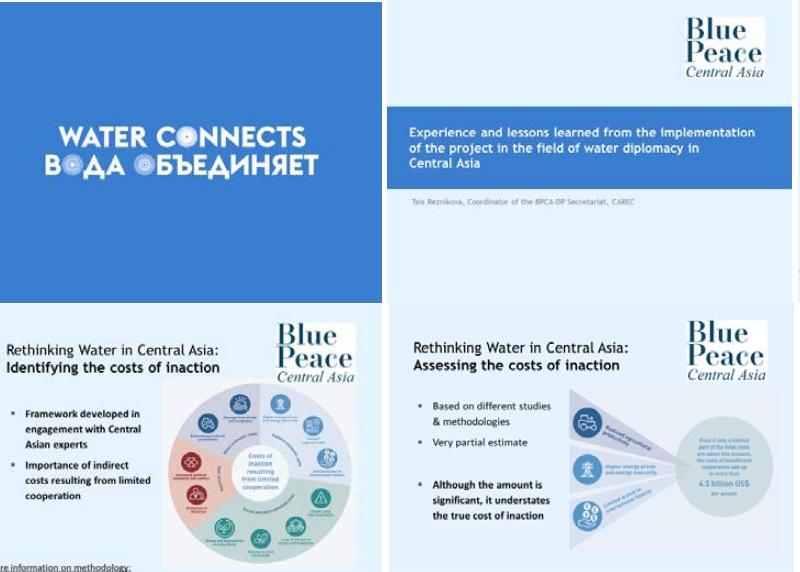
The Blue Peace Central Asia (BPCA) initiative was presented to the participants of the 11th Central Asian Leadership Programme (CALP). It is the only regular leadership programme enhancing sustainable development in the region. This year, in light of a global pandemic, the 11th CALP was organized online.
The Programme was designed to demonstrate to the young leaders, not only the problems posed by the COVID-19 but to also the window of opportunities in the future world after the pandemic. Environmentalists today can act as agents of sustainable changes and approaches such as green recovery, IWRM, Nexus and others.
Dr André Wehrli, the Regional Water Advisor for Central Asia of the Swiss Embassy in Kazakhstan, was one of the key speakers. Dr Wehrli presented Swiss water activities in Central Asia, bringing the light to the background of the BPCA process and its three pillars: policy, operational and youth. He underlined that the project focuses on transboundary water cooperation as a tool for peace-building and combines both policy level with technical work on the ground.
The Youth component of the BPCA initiative was presented by Ms Lyazzat Syrlybayeva, Regional Coordinator of the Central Asia Youth for Water Network (CAY4W). CAY4W unites more than 250 members from Central Asian Countries and Afghanistan. Activities of the network include learning seminars, youth session at regional and global water events, eco-picnics, summer camp, and events within Eco-Talk incubator.
Finally, in the session devoted to water diplomacy, Ms Tais Reznikova, the coordinator of the Secretariat of the BPCA Dialogue Platform shared some insights on how to implement the projects in this field in the context of Central Asian region. In a time of the global pandemic, the focus of many water projects switched more to the direction of WASH (Water, Sanitation and Hygiene) sector, which has affected the water diplomacy initiatives as well. Moreover, the recovery measures of the countries after this complex humanitarian crises will aim at economic development, food and energy security, which will primarily increase pressures on transboundary water resources. Thus, transboundary cooperation is essential to minimize the costs for effective COVID-19 response and economic recovery of the region, emphasized the speaker.
